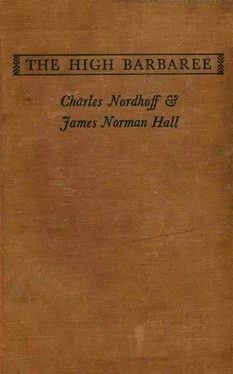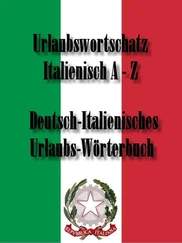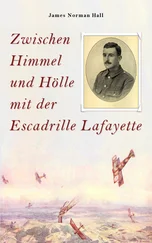“My guess is that he was a homesick New Englander for the rest of his life, but he was never known to admit it. His love for the sea was, certainly, passed down to some of his descendants, myself among them, but I’m speaking now of my Uncle Thad. He was never cut out for an inlander, and at seventeen yearning for the sea sent him to Boston, and that was the last Westview saw of him except for the rare visits at our house. He was in sail, at first; then he entered the merchant service, worked his way up, and, at the time I’m speaking of he was a first mate in the Atlantic trade.
“My mother thought the world of her brother, although she never quite forgave him for deserting Iowa, and her hope was that he would some day tire of the sea, marry a good sensible woman from Westview or thereabout, and settle down to farming. An upstairs room in our house was known as ‘Uncle Thad’s room,’ and Mother always kept it ready, as though he were expected to return next week or the next day. It was a large sunny room looking out on the plum and cherry trees and the strawberry beds of the back garden. I loved this room. There were all kinds of souvenirs and knick-knacks in it that Uncle Thad had sent or brought home from his voyages. A New Englander who didn’t love sea shells wouldn’t be a New Englander and Uncle Thad had a superb collection gathered in all parts of the world. Among them was a matchbox filled with shells so tiny that I thought at first they were nothing but grains of coarse sand. On rainy days I used to spread them out on a sheet of white paper and examine them under my dad’s reading glass.
“The most important piece of furniture in the room was a tall ‘secretary,’ as they called them, that had belonged to my Grandfather Vail. It was half desk, half bookcase, with drawers below and glassed-in bookshelves above. Here my uncle kept his favorite volumes, mostly narratives of travel and exploration. He had Drake’s The World Encompassed, Hawkesworth’s Voyages—which included Wallis’s, Cook’s, Byron’s, and Carteret’s—in three volumes bound in scuffed and powdery calfskin; Anson’s Voyages, Commodore Porter’s Journal of a Cruise made to the Pacific Ocean in the U. S. Frigate “Essex,” Ellis’s Polynesian Researches, and dozens more. It was a first-rate collection and I’d read the lot before I was through high school, some of them two or three times. I can’t imagine a better education for a kid than to be turned loose in such a library, though it’s not the kind to fit him for living in the cockeyed world we know. Of course, in those days I’d not yet come to the reading stage. I merely leafed through the pages to look at the old foxed engravings of heathen lands and people and the charts of bays and coves and landlocked harbors.
“On the wall, on either side of the secretary, were two large charts showing both hemispheres, with particular reference to the oceans. On these my uncle kept a record of his voyages, adding the latest ones whenever he came to Westview. Each was beautifully marked in, showing the ports touched at both outward and homeward bound. I used to climb on a chair and study these charts. In this way I followed my uncle all over the world, and I could string off the names of ports as easy as A B C.
“Two portraits on the opposite wall had an endless fascination for me. One was an oil painting of my great-great-uncle, Oliphant Vail, lost with his ship on a whaling voyage to the Pacific in 1836. The portrait shows him standing on the deck of his ship, the Harriet, holding in his right hand a harpoon attached to a line beautifully coiled in its tub. The figure is that of a man of thirty or around that, the face bold and determined looking; the eyes seem to be gazing through or past you to a school of cachalots far out to sea.
“The other was an engraving—from a drawing by Webber, who was Captain Cook’s artist—of an old Polynesian chief. He is bare-chested and bare-legged, a man of lean but powerful frame, with snow-white hair, and dressed in a kirtle of white tapa cloth. Beyond is an idyllic background of coconut palms reflected in the still waters of a lagoon. That old native became almost as real to me as my dad.
“I used to study these portraits by the hour. Mother could tell me little of my great-great-uncle, Oliphant, and nothing at all of the Polynesian chief. She would say: ‘You must wait till your Uncle Thad comes home again.’ She had letters from him once or twice a year, but never knew when we might expect him at Westview.
“You will understand what a romantic figure my uncle became, in my eyes. I thought about him, dreamed about him, boasted about him to kids of my own age. I was the only boy in Westview who had a seafaring uncle, and this gave me an importance I made the most of. I would show my friends Uncle Thad’s room, and many a rainy Saturday was spent examining his charts and the engravings in Hawkesworth’s Voyages.
“I was between three and four when I first saw my uncle and barely remembered that visit. He came again when I was ten. I remember what a shock it was to see that he was not a big man. We had no photographs of Uncle Thad, and I’d pictured him as standing head and shoulders above other men; but he was no taller than my mother, and weighed around one hundred and forty-five pounds. He had a deep resonant voice and eyes of a deep blue that flashed and burned with energy.
“My disappointment at his size wore off in about ten minutes. When my uncle stepped into his upstairs room, with me at his heels, he was right back on his pedestal. He treated me as an equal, a companion, and that flattered me a lot. He had enough of the boy left in him to make him a comrade in the best sense of the word.
“The moment we were in the room, with the door closed behind us, he said: ‘Sit you down, Alec. I want your advice about something right now. I’ve come prepared to stay two weeks. Will it be okay to make such a long visit?’
“I didn’t realize it then, but he was pulling my leg. It pleased him to see how upset I was at the thought that he might shorten the visit.
“I blurted out: ‘Okay? Gosh, Uncle Thad! I should say it will be!’
“ ‘You’re sure?’
“ ‘Yes, sir.’
“ ‘Good! That’s settled. I’ll stay the full time. . . . Now there’s one other thing. I’ll need your help in this; you must back me up. Every time I come to Westview your mother starts to work on me to get me to stay. She wants me to leave the sea and take to farming. What do you think about it?’
“ ‘Why . . . you couldn’t do that, Uncle Thad,’ I said.
“ ‘That’s the ticket!’ he said, heartily. ‘You’re a true Vail; got salt water in your blood. Now your mother loves the land the way you and I do the sea. So does your dad. It’s all right. Nothing against ’em, and Iowa’s a beautiful state. But there’s no water, to say nothing of salt water, and how’s a man to live without it?’
“ ‘Oh yes there is!’ I replied, eagerly. ‘You’ve come at the wrong time of year, Uncle Thad. You ought to have been here in April when we had the heavy rains. The Chaquaqua River went right out of its banks. It flooded the bottom lands for miles, out north.’
“ ‘That’s right. I remember. There used to be those bottom-land floods when I was a kid, and how I loved ’em! Got a skiff?’
“I shook my head, glumly.
“ ‘Dad won’t let me have one till I’m twelve.’
“ ‘I’ll bet that’s your mother’s doing,’ said Uncle Thad. ‘Twelve . . . well, that ain’t so long to wait, if you don’t think about it too much. Tell you what, Alec. On your twelfth birthday I’ll give you something that’s got a skiff beat a thousand miles. I’ll get you a canoe like they use in New England and there ain’t none better. And I’ll come with it if that’s possible. You fix things up with the weather man that year. Tell him to send plenty of spring rain so’s we can roam all over the bottom lands. Is that a bargain?’
Читать дальше












